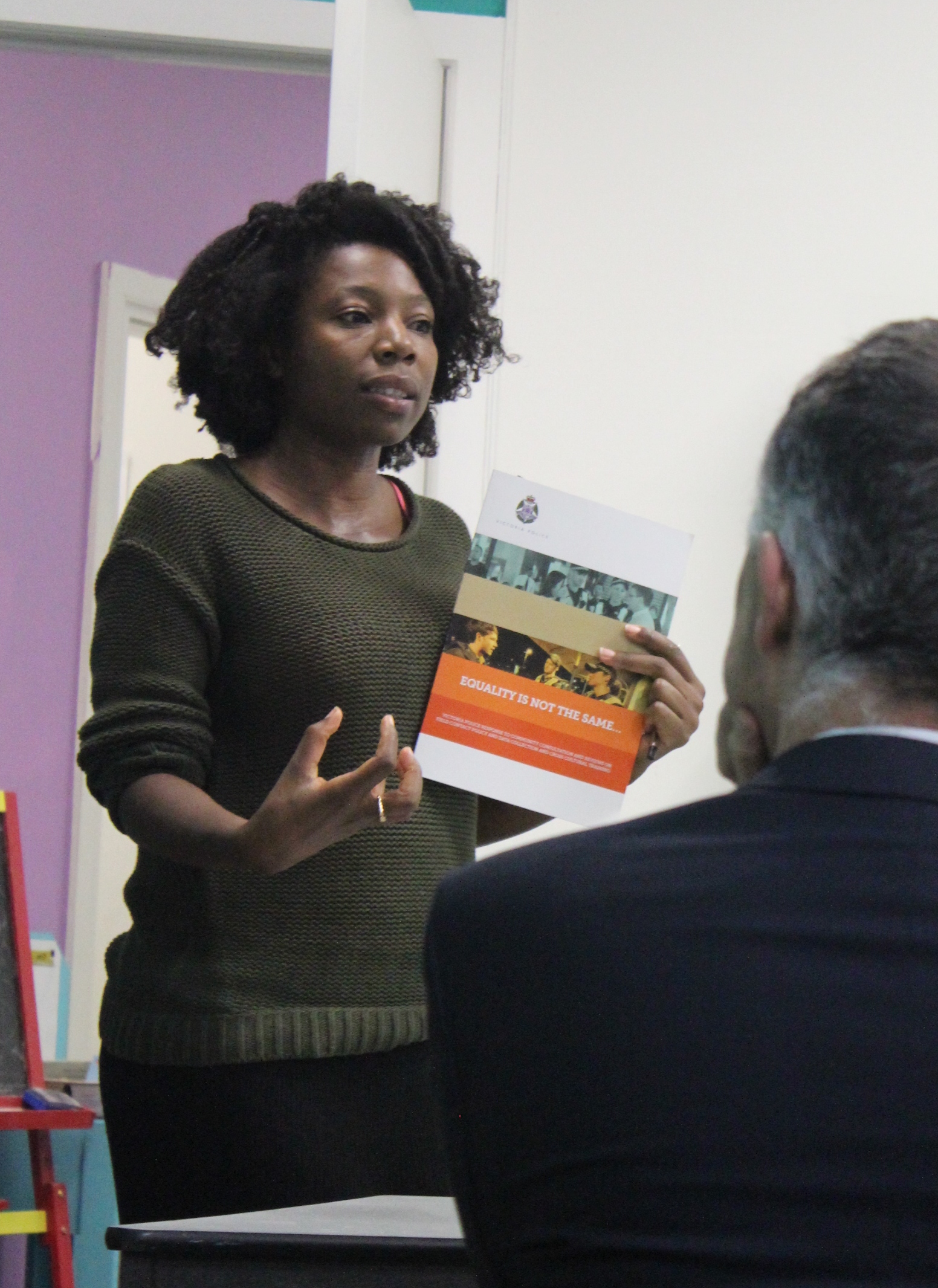Race Discrimination Case
Haile-Michael v Konstantinidis was settled on Monday 18th February 2013 with a landmark agreement for Victoria police to publicly review its training and field contact* practises.
The outcomes of the inquiry have the potential to improve the interactions of police with Aboriginal, newly arrived and culturally diverse communities not only in Victoria but across Australia, as other police services take note of the Victorian response.
The Long Road to Change by Michael Green provides an excellent background to the case and the circumstances surounding it.
Police ready to listen, African Australians have plenty to say by Squirrel Main also provides further information on the issues of policing and race.
On 30 December 2013 Victoria Police published a report, Equality is not the Same, and launched a 3 year action plan to address community concerns about discriminatory policing and racial profiling. More information on the inquiry can be found here.
The settlement agreement provided for the internal documents discovered during the lead up to the case and research commissioned specifically for the applicants to be publicly released.
* ‘Field contact’ refers to the practice of stopping people in public and recording their personal information.
The research reports
Victorian Police LEAP data from Flemington and North Melbourne (2005-2008) was analysed during the case by an eminent statistician, Professor Ian Gordon from the Univeristy of Melbourne. The results proved what young African people have known and reported for years – that they were about two and a half times more likely to be subject to an arbitrary “stop and search” than their numbers in the area suggests likely.
The justification given for such policing rests on their supposedly high representation in local crime statistics. Yet Professor Gordon found that the same police LEAP data revealed a significant under-representation of the stopped young African Australians in the crime figures. A summary of the findings are below.
Summary of Experts Report – English (PDF)
Summary of Experts Report – Arabic (PDF)
Summary of Experts Report – Amharic (PDF)
Summary of Experts Report – Tigringna (PDF)
Summary of Experts Report – Somali (PDF)
Summary of Experts Report – Dinka (PDF)
Professor Ian Gordon PhD, AStat
Professor Ian Gordon has a PhD in mathematical Statistics and is an Acredited Statistician of the Statistical Society of Australia Inc. He is a founding member of the Australiasian Epidemiological Association and has provided statisical consulting to several hundred clients over the past 25 years. He is the author or co-author of about 70 papers in refereed journals. He is Director of the Statisical Consulting Centre at the University of Melbourne.
1. Professor Ian Gordon – first report (redacted) (PDF)
2. Professor Ian Gordon supplementary report (PDF)
3. Professor Ian Gordon – third report (PDF)
Professor Chris Cunneen PhD
Professor Chris Cunneen is the Profesor of Justice and Social Inclusion at the Cairns Institute, James Cook University. He holds a conjoint appointment as Professor at the University of New South Wales Law Faculty, and adjunct Professional positions at University of Sydney Law School and Institute of Criminology , University of Victoria, Wellington NZ. Prof Cunneen has worked as research consultatnt with a number of Australian Royal Commissions and Federal Inquiruies and with federal, state and local government agencies including departments of communities, human services, attorneys-general, police and corrections. He was Chairperson of the NSW Governments Juvenile Justice Advisory Council 2001-2007, a member of the NSW Taskforce on Child Sexual Assault in Aboriginal Communities 2003-2006. He has authored or co-authored 14 books, 41 commissioned reports, 42 book chapter, 61 refereed articles and 14 non-refereed journal articles and regularly provides expert commentary to Australian and international media on criminal justice issues.
4. Professor Chris Cunneen – first report (PDF)

